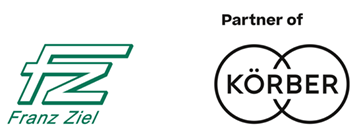Sterile medicinal, drug product manufacturing is undergoing a transformative phase with the revised EU GMP Annex 1, a process that began in 2017 and was completed in 2022. The annex was published in August 2022 and came into force in August 2023, marking a significant upgrade in regulatory standards advancing prescriptive GMP requirements with principles based on QRM (Quality Risk Management) considering a holistic, risk based and proactive approach.
Annex 1 Revision
Alongside the revision of ICHQ9(R1) on Quality Risk Management and introduction of Product Life Cycle Strategy (ICHQ12) considerations represents a paradigm shift in GMP regulations. This revision received widespread attention as the scope and content increased significantly over the previous 2008 version nearly a decade ago, and the joint efforts of PIC/S and WHO in co-authoring the document added significant weight to its international impact and not just within the EU.
Franz Ziel is actively involved
Several not-for-profit organizations were involved in the revision process, including the Parenteral Drug Association (PDA), the International Society for Pharmaceutical Engineering (ISPE), and the Pharmaceutical and Healthcare Sciences Society (PHSS). Our Head of GMP Compliance, James Drinkwater, co-led the PHSS Annex 1 comment group. His direct involvement from the beginning of the revision process allowed Franz Ziel GmbH to proactively adapt to the emerging regulatory landscape.
Recognizing the significance of these changes, Franz Ziel GmbH has been proactive in addressing the evolving regulatory landscape. The company has undertaken a thorough review and adaptation of its barrier technology designs to ensure alignment with the latest regulatory requirements.

Annex 1 Specific Requirements
The goals of GMP are to ensure the quality, efficacy, safety and supply of medicinal products and advanced therapies. Annex 1 applies to the manufacture of sterile drug products following a patient-centered approach underscored by QRM principles. Patient safety and product quality are paramount, resulting from managed control of contamination and cross-contamination. Annex 1 achieves this by focusing on risk management and effective risk-based decision making which involves thorough process understanding and mitigating risks throughout the manufacturing process and through the product life cycle.
Contamination Control Strategy
A key Annex 1 document is the Contamination Control Strategy; CCS. This strategy consolidates various elements of contamination risk and mitigation, thereby establishing effective control mechanisms. Environmental control with defined conditions within Grade A areas results from a combination of process and environmental monitoring. Franz Ziel GmbH brings these different aspects of control together to create the conditions for the aseptic filling process.
Barrier technologies
The Annex emphasizes the use of barrier technologies such as Restricted Access Barrier Systems (RABS) or isolators over conventional filling lines. Isolators provide controlled conditions and minimize microbial contamination associated with direct human interventions in the critical zone. Barrier systems increase the protection of the product from potential external sources of endotoxin, particulate and microbial contamination such as personnel, materials, and the surrounding environment.
Franz Ziel GmbH is not only a provider of state-of-the-art barrier technology and has extensive experience in barrier technology design and construction, but also excels in the associated process design.
Customer-focused services
At Franz Ziel GmbH, we take pride in our role as a dedicated partner in helping our customers navigate the unique challenges of Annex 1 compliance. We offer a comprehensive suite of services tailored to the specific needs of pharmaceutical manufacturers, including, but not limited to, contamination control strategy development, which involves analyzing and mitigating potential contamination risks throughout the manufacturing process. In addition, our expertise extends to conducting airflow visualization studies to ensure optimal airflow patterns within controlled environments to minimize the risk of contamination. We also specialize in barrier and glove integrity testing to verify the effectiveness of protective barriers and equipment in maintaining sterile conditions. In addition, we can assist with the installation of indirect product contact components to ensure seamless integration and compliance with regulatory standards. Through our collaborative approach and commitment to excellence, we aim to enable our customers to achieve and maintain the highest standards of quality, safety and regulatory compliance in sterile drug manufacturing.
If want to know more about our services, go to GMP or get in touch with us: mail@franz-ziel.gmbh.com

